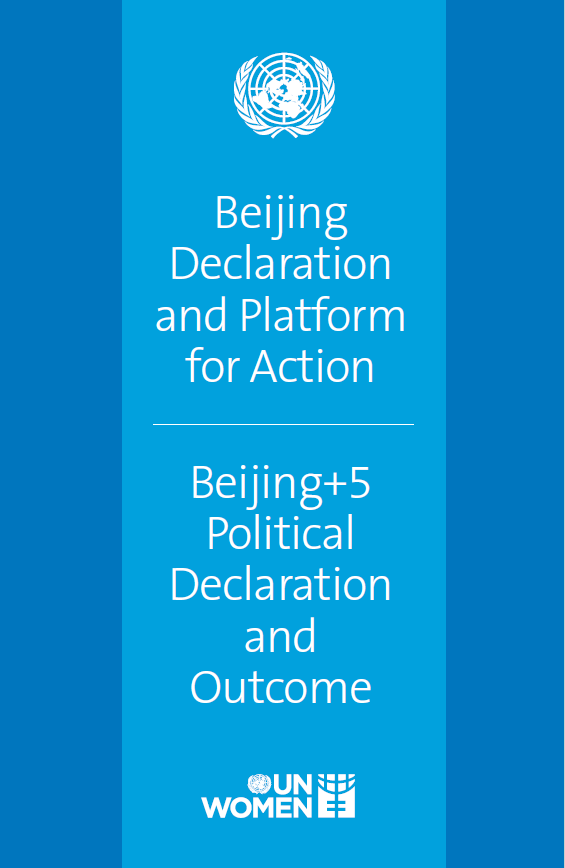1995 Beijing Declaration and Platform for Action
Analysis of precedential value
The UN General Assembly adopted this resolution without a general vote in September 1995. The General Assembly is the preeminent governing body of the UN system and consists of all 193 UN Member States. “By means of a resolution adopted without a vote,” the UN press team reported, “the Assembly also called upon members of the international community to take action for the effective implementation of the Beijing agreements.”
Used as precedent
key population and community leadership
“Ensure the involvement of women, especially those infected with HIV/AIDS or other sexually transmitted diseases or affected by the HIV/AIDS pandemic, in all decision-making relating to the development, implementation, monitoring and evaluation of policies and programmes on HIV/AIDS and other sexually transmitted diseases.” (paragraph 108(a))
societal enablers
“Encourage all sectors of society, including the public sector, as well as international organizations, to develop compassionate and supportive, non-discriminatory HIV/AIDS-related policies and practices that protect the rights of infected individuals.” (paragraph 108(c))
universal health coverage
“Ensure the provision, through the primary health-care system, of universal access of couples and individuals to appropriate and affordable preventive services with respect to sexually transmitted diseases, including HIV/ AIDS, and expand the provision of counselling and voluntary and confidential diagnostic and treatment services for women; ensure that high-quality condoms as well as drugs for the treatment of sexually transmitted diseases are, where possible, supplied and distributed to health services.” (paragraph 108(m))
